{This Post is Recycled – Reworked from a Previous Version and Reposted In It’s Updated Glory}
In the Election of 1860, despite almost unanimous opposition from southern states, Abraham Lincoln was elected. Between the announcement of his victory (it took a little longer to tally everything back then) and his inauguration in early March, seven southern states announced they were leaving the Union.
From Georgia’s Declaration of Secession:
The people of Georgia having dissolved their political connection with the Government of the United States of America, present to their confederates and the world the causes which have led to the separation. For the last ten years we have had numerous and serious causes of complaint against our non-slave-holding confederate States with reference to the subject of African slavery. They have endeavored to weaken our security, to disturb our domestic peace and tranquility, and persistently refused to comply with their express constitutional obligations to us in reference to that property…
A brief history of the rise, progress, and policy of anti-slavery and the political organization into whose hands the administration of the Federal Government has been committed will fully justify the pronounced verdict of the people of Georgia. The party of Lincoln, called the Republican party, under its present name and organization, is of recent origin. It is admitted to be an anti-slavery party… anti-slavery is its mission and its purpose…
Notice the way the format consciously echoes the Declaration of Independence – the basic proclamation followed by a list of complaints explaining why they are never ever ever getting back together.
From Mississippi’s Declaration:
In the momentous step which our State has taken of dissolving its connection with the government of which we so long formed a part, it is but just that we should declare the prominent reasons which have induced our course.
Our position is thoroughly identified with the institution of slavery – the greatest material interest of the world. Its labor supplies the product which constitutes by far the largest and most important portions of commerce of the earth. These products are peculiar to the climate verging on the tropical regions, and by an imperious law of nature, none but the black race can bear exposure to the tropical sun. These products have become necessities of the world, and a blow at slavery is a blow at commerce and civilization. That blow has been long aimed at the institution, and was at the point of reaching its consummation. There was no choice left us but submission to the mandates of abolition, or a dissolution of the Union, whose principles had been subverted to work out our ruin.
They all pretty much go like this. Based on these documents, produced by the Southern states for the explicit purpose of proclaiming to the world the causes of their secession, the main issues seemed to be (1) slavery, (2) slavery, and – in some cases – (3) slavery.

South Carolina took the lead as they always did when steps towards racial equity needed to be crushed:
But an increasing hostility on the part of the non-slaveholding States to the Institution of slavery has led to a disregard of their obligations… {The northern} States… have enacted laws which either nullify the Acts of Congress, or render useless any attempt to execute them… Thus the constitutional compact has been deliberately broken…
Those {non-slaveholding} States have assumed the right of deciding upon the propriety of our domestic institutions*; and have denied the rights of property** established in fifteen of the States and recognized by the Constitution; they have denounced as sinful the institution of Slavery***; they have permitted the open establishment among them of societies,**** whose avowed object is to disturb the peace… They have encouraged and assisted thousands of our slaves to leave their homes; and those who remain, have been incited by emissaries, books and pictures to servile insurrection.
*i.e. ‘slavery’
**i.e. ‘slaves’
***i.e. ‘Slavery’ – oh wait, it says it this time, doesn’t it? My bad.
****i.e., abolitionists
South Carolina was upset that the North allowed so much discussion of things which threatened their way of life and went against their beliefs. They listed as one of their central reasons for trying to break the country their collective outrage that other states weren’t doing enough to stifle debate.
Their little white feelings were hurt and their dominant role in the world inconvenienced. Poor things.
Seriously, it goes on for several pages like that.
 Was Lincoln’s election really such a threat to their way of life? Maybe. Not according to Lincoln, it wasn’t, but the new Republican Party openly advocated for restrictions on slavery – particularly in terms of limiting its expansion. Perhaps that was a debate worth having, in the context of the times.
Was Lincoln’s election really such a threat to their way of life? Maybe. Not according to Lincoln, it wasn’t, but the new Republican Party openly advocated for restrictions on slavery – particularly in terms of limiting its expansion. Perhaps that was a debate worth having, in the context of the times.
But the time for discussion and compromise, it seems, was over. The writing was on the wall, and the South feared that reason and decency would no longer produce the outcome they wished. So, they circumvented both and tried to change the rules. They chose theatrics over the much more difficult path of introspection.
…those who remain, have been incited by emissaries, books and pictures to servile insurrection.
Slavery was not simply about physical bondage, as central as that was. It required a type of brainwashing and systemic manipulation so that the slave remained perpetually hopeless, and largely helpless. They were kept ignorant of all but the most basic skills or concepts. Slave-owners – the same ones who would soon rebel based on their right not to be bossed around – were forbidden by law from teaching their slaves to read, or otherwise expanding their horizons beyond what was absolutely necessary.
The shocking thing about slave revolts isn’t that they happened – it’s that there were so few of them. Most resistance was covert, cultural – playing dumb, breaking things, maintaining an identity bewildering to white slave-owners.
The Underground Railroad was pretty amazing, but the total numbers carried to freedom were miniscule compared to the size of the institution. And yet…
…incited by emissaries, books and pictures…
Do you feel the past reaching out to you through that line? I get goosie-bumps.
 “We don’t like the thinking prompted by your teachers, your books, your visuals. We don’t appreciate you complicating their worlds or ours by introducing problematic ideas. Ignorance is bliss, buddy – our version of reality is good enough, despite its apparent inability to withstand the slightest scrutiny.”
“We don’t like the thinking prompted by your teachers, your books, your visuals. We don’t appreciate you complicating their worlds or ours by introducing problematic ideas. Ignorance is bliss, buddy – our version of reality is good enough, despite its apparent inability to withstand the slightest scrutiny.”
See? I coulda been a Southerner. Or an Oklahoma legislator!
The problem with education is that it gets people thinking. The problem with thinking is that they don’t always think what we want them to. And, in the South’s defense, sometimes a little knowledge IS a dangerous thing – we’ll look at that in Part Two.
The South understood the dangers of expanded thinking. As lovers of tradition – and of being in charge – they had little taste for new or threatening ideas. They codified narrow-mindedness as a virtue and framed the ignorance of those in bondage as a mercy.
Turns out the human race is pretty good at legal, intellectual, and moral contortions when it’s time to rationalize something we really really want to be true.

After the War – which they lost – the South continued to fight against dangerous levels of education for others. They also began denying their own explicitly stated causes for trying to leave in the first place. When you feel strongly enough that your cause is just, reality is just one more adversity to nobly overcome for the greater good.
That’s Part Three.
There’s a common saying about people who don’t know their history being doomed to repeat it. That’s true enough, but it doesn’t acknowledge those who want to recapture the ignorance and sins of the past – who find antebellum ideals to be the very core of American greatness. Today, as then, that requires ignoring or subverting knowledge and debate.
Both are still dangerous.
RELATED POST: Forever Unfit To Be A Slave (A Little Knowledge Is A Dangerous Thing, Part Two)
RELATED POST: Liar, Liar, Twitterpants on Fire (A Little Knowledge Is A Dangerous Thing, Part Three)


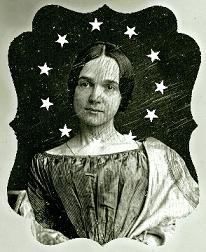
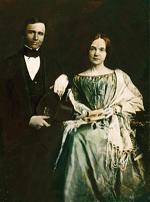
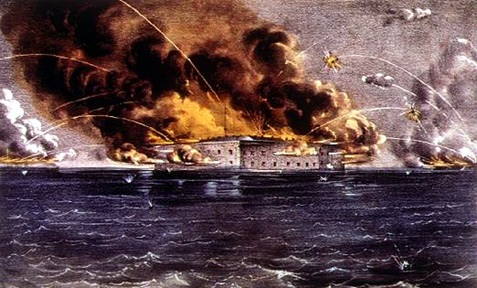 That Chesnut always returns to the sincere – the actual experience. It anchors her prose in a way mere observation or gratuitous fiction could not. Her ability to grab descriptive slices of people and events and weave them in so transparently makes this something more alive than mere history is usually thought to be.
That Chesnut always returns to the sincere – the actual experience. It anchors her prose in a way mere observation or gratuitous fiction could not. Her ability to grab descriptive slices of people and events and weave them in so transparently makes this something more alive than mere history is usually thought to be. 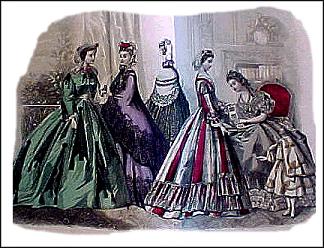
 “A satisfying faith” – once again, understated layers of meaning. Chesnut doesn’t directly comment, she portrays – with precision. I think she’s aware of us, all these years later, reading her through this… ‘documentation’ of events. Do you feel her Mona Lisa smirk on us?
“A satisfying faith” – once again, understated layers of meaning. Chesnut doesn’t directly comment, she portrays – with precision. I think she’s aware of us, all these years later, reading her through this… ‘documentation’ of events. Do you feel her Mona Lisa smirk on us? 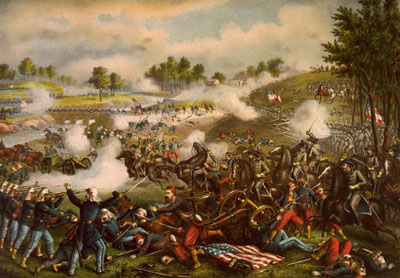 The standard American History book will tell you the South was overconfident after First Bull Run, etc. I’d argue Colonel Manning and his ilk were way ahead of the crowd on this one.
The standard American History book will tell you the South was overconfident after First Bull Run, etc. I’d argue Colonel Manning and his ilk were way ahead of the crowd on this one. 
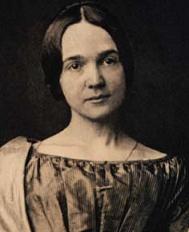
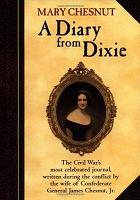 The diary of Mrs. Chesnut is one of the essential primary sources of the Civil War, and still readily available if you’re interested. It’s quite accessible to the casual reader – you won’t even know you’re learning history, I promise.
The diary of Mrs. Chesnut is one of the essential primary sources of the Civil War, and still readily available if you’re interested. It’s quite accessible to the casual reader – you won’t even know you’re learning history, I promise. 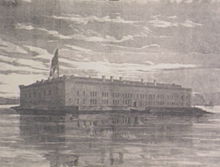 Never has a better case been made for teaching reading and writing, although her keen observations on human nature are perhaps harder to mandate.
Never has a better case been made for teaching reading and writing, although her keen observations on human nature are perhaps harder to mandate.  “Men were audaciously wise and witty.” What a marvelous phrase. It sounds like the Mad Hatter’s tea party, but instead of pure chaos, her description is redolent of forced fearlessness and social gilding. F. Scott Fitzgerald has nothing on the wealthy belle when it comes to writing dinner parties.
“Men were audaciously wise and witty.” What a marvelous phrase. It sounds like the Mad Hatter’s tea party, but instead of pure chaos, her description is redolent of forced fearlessness and social gilding. F. Scott Fitzgerald has nothing on the wealthy belle when it comes to writing dinner parties. 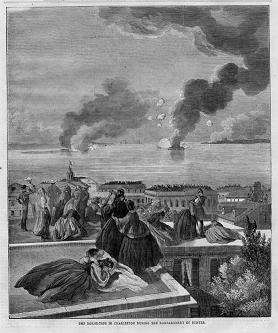 While the rest of the city – and, by proxy, the South – celebrates the opening rounds of what will no doubt prove a majestic little melee, one anonymous voice just out of view notices that they’re firing land weapons at a fort designed to withstand attack by foreign navies.
While the rest of the city – and, by proxy, the South – celebrates the opening rounds of what will no doubt prove a majestic little melee, one anonymous voice just out of view notices that they’re firing land weapons at a fort designed to withstand attack by foreign navies. 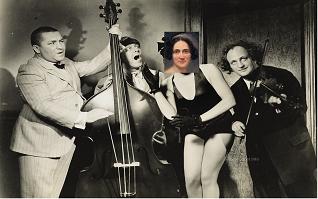
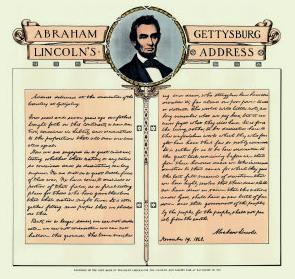 This one’s a little longer than I normally like – a fact which isn’t exactly helped by adding 54 words up front to tell you so. I wanted to wrap this one up, but couldn’t bring myself to cut more than I already have. For the #11FF actually plowing through these with me, my apologies
This one’s a little longer than I normally like – a fact which isn’t exactly helped by adding 54 words up front to tell you so. I wanted to wrap this one up, but couldn’t bring myself to cut more than I already have. For the #11FF actually plowing through these with me, my apologies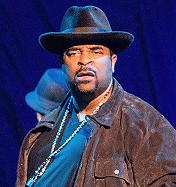 I like it, and I cannot lie.
I like it, and I cannot lie.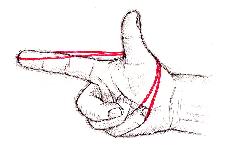 What beautiful sentence structure. He’s already hit us with repeated uses of ‘dedicate’ in the opening segment. Either he needs a thesaurus, or he’s intentionally layering in a theme before becoming more specific with his thesis.
What beautiful sentence structure. He’s already hit us with repeated uses of ‘dedicate’ in the opening segment. Either he needs a thesaurus, or he’s intentionally layering in a theme before becoming more specific with his thesis. 

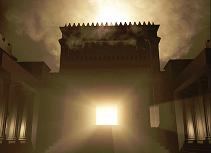 This part is difficult for my kids. Even those who are Sunday-go-to-Meetin’ types don’t really do much super-sacred any more. We talk about what these ‘brave men’ must have done to ‘consecrate’ that ground. They came, they fought, they died, all for a hypothesis about men being created equal, according to Lincoln.
This part is difficult for my kids. Even those who are Sunday-go-to-Meetin’ types don’t really do much super-sacred any more. We talk about what these ‘brave men’ must have done to ‘consecrate’ that ground. They came, they fought, they died, all for a hypothesis about men being created equal, according to Lincoln.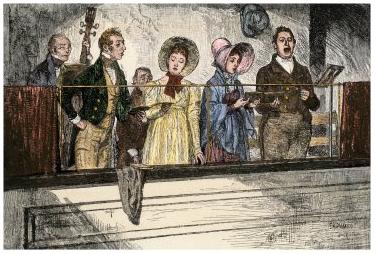 “Would you be free from your burden of sin? There’s POWER in the BLOOD, POWER in the BLOOD…”
“Would you be free from your burden of sin? There’s POWER in the BLOOD, POWER in the BLOOD…”  That’s a mouthful, and the hardest part for students to memorize when they’re reciting it to the class for extra credit. Lincoln’s word-weaving turns the purpose of the occasion, the war, and the entire nation inside out – bringing to the foreground the ideals we still espoused, but had long since negated through abuse and neglect.
That’s a mouthful, and the hardest part for students to memorize when they’re reciting it to the class for extra credit. Lincoln’s word-weaving turns the purpose of the occasion, the war, and the entire nation inside out – bringing to the foreground the ideals we still espoused, but had long since negated through abuse and neglect.  Lazarus, John Baptizing in the Jordan, Jesus emerging from the tomb – it’s all about the rebirth, baby. There’s a reason we hunt eggs (of all things) on Easter.
Lazarus, John Baptizing in the Jordan, Jesus emerging from the tomb – it’s all about the rebirth, baby. There’s a reason we hunt eggs (of all things) on Easter. 
 When I talk about this speech in workshops, I never know how much to assume teachers already know, or whether my ‘givens’ and their ‘givens’ are likely to be compatible. We cover so many different things in so many different ways… there’s very little we can assume to be universal in Social Studies content knowledge (or pedagogy, for that matter). And that’s OK.
When I talk about this speech in workshops, I never know how much to assume teachers already know, or whether my ‘givens’ and their ‘givens’ are likely to be compatible. We cover so many different things in so many different ways… there’s very little we can assume to be universal in Social Studies content knowledge (or pedagogy, for that matter). And that’s OK.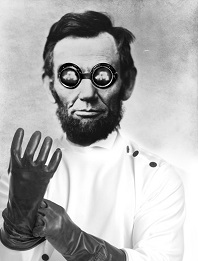 Why do we call them our ‘fathers’? What makes someone a ‘father’?
Why do we call them our ‘fathers’? What makes someone a ‘father’?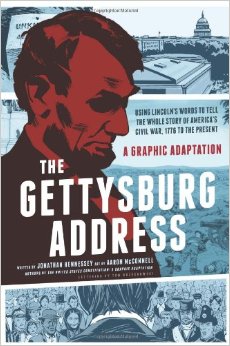 But Baby ‘Merica isn’t dedicated to God – at least according to Lincoln . (Don’t tell the Republicans!) It’s dedicated to an idea, a proposition – that all men are created equal.
But Baby ‘Merica isn’t dedicated to God – at least according to Lincoln . (Don’t tell the Republicans!) It’s dedicated to an idea, a proposition – that all men are created equal. Does that work? This… ‘all men are created equal’ – can you run a country based on that, or will it fail?
Does that work? This… ‘all men are created equal’ – can you run a country based on that, or will it fail? This, incidentally, would have been news to many of the men being honored that day. Most thought they were fighting for the Constitution, the Union, maybe their states or families, or just because they were annoyed with the people on the other side. A few sensed the long game, but it was hardly the norm.
This, incidentally, would have been news to many of the men being honored that day. Most thought they were fighting for the Constitution, the Union, maybe their states or families, or just because they were annoyed with the people on the other side. A few sensed the long game, but it was hardly the norm.